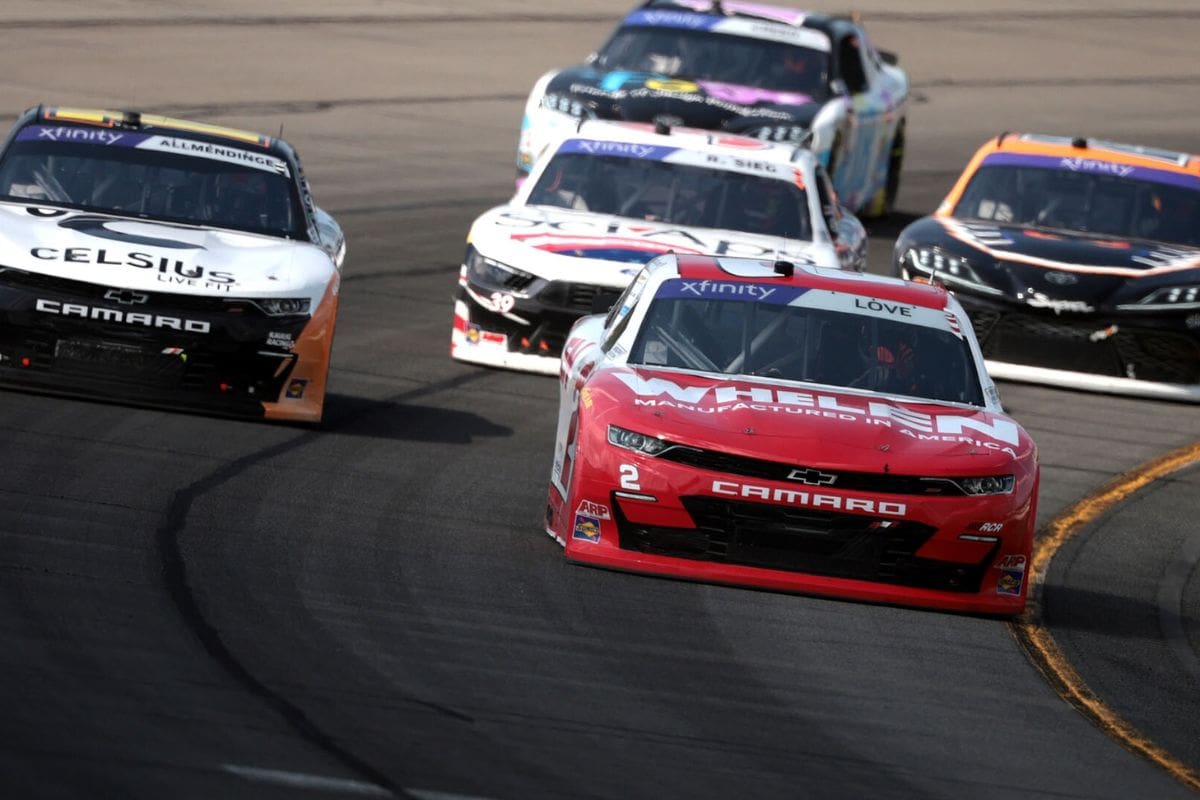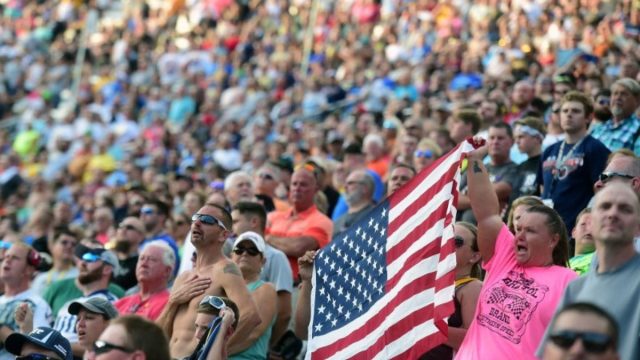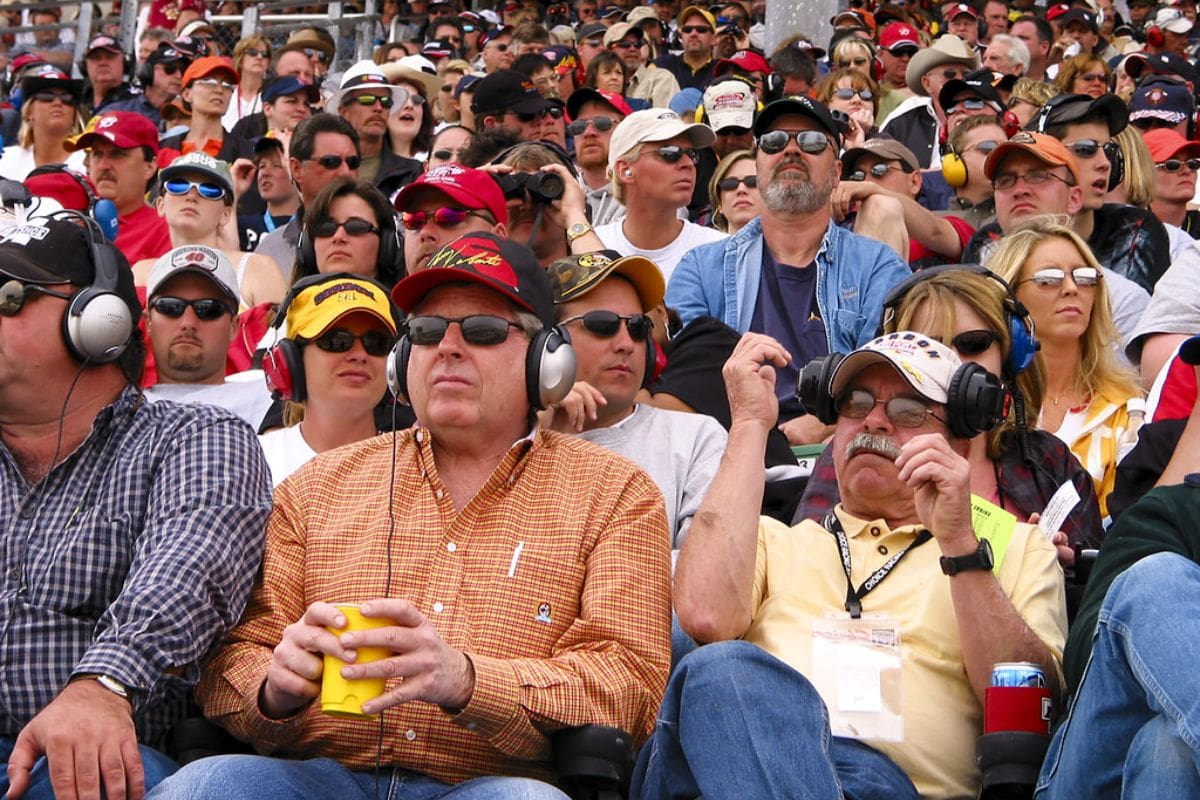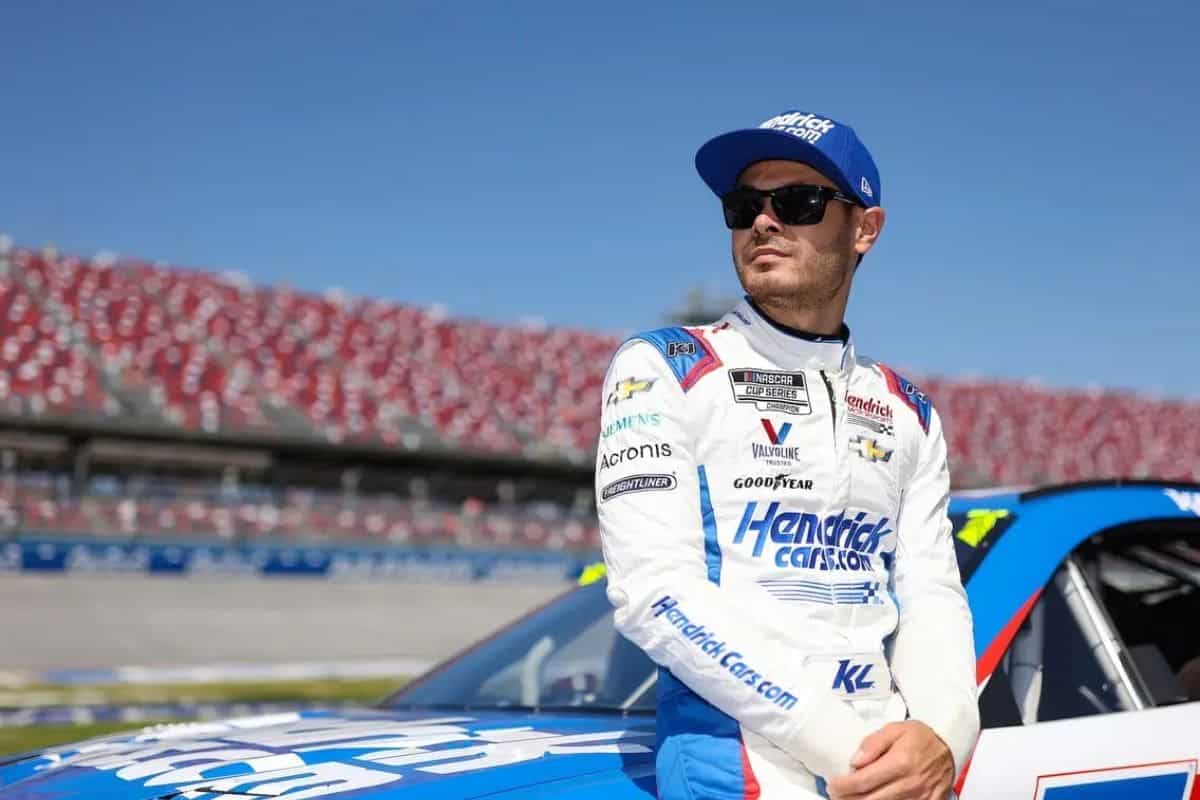NASCAR’s Controversial Penalties at Pocono: The recent enforcement of penalties during the Pocono Raceway event has ignited a wave of discontent among NASCAR fans, who argue that the officiating was inconsistent and unjustly impactful on key championship contenders, including Kyle Larson. Social media platforms have become a battleground for these grievances, reflecting a growing call for transparency and fairness in NASCAR’s regulatory practices. As the championship standings face potential changes, the intense scrutiny from fans highlights the urgent need for NASCAR to address these concerns. The unfolding controversy raises questions about the integrity of the sport’s officiating standards.
Key Highlights
- Fans criticize NASCAR for inconsistent and unfair penalty enforcement.
- Social media is filled with outrage over the penalties given to Larson, Elliott, Gibbs, and Suarez.
- Many believe the penalties disrupted the competitive balance and final race positions.
- The penalties have significant implications for the championship standings and driver strategies.
- Protest highlights a demand for transparency and accountability in NASCAR’s officiating practices.
Pit Road Drama at Pocono
Controversy took center stage during The Great American Getaway 400 as NASCAR’s decision to penalize Kyle Larson, Chase Elliott, Ty Gibbs, and Daniel Suarez for speeding on pit road‘s section 7 sparked substantial debate among fans and analysts. The penalties were issued following Todd Gilliland’s crash on lap 115, which led to a crucial pit stop by 13 drivers, all seeking to optimize fuel and tire conditions for the remainder of the race.
This incident shows the intense sport of NASCAR, where precision and timing are paramount. The penalization of these drivers highlights the strict enforcement of NASCAR’s rules, designed to ensure fair play and safety on the track. However, the timing and context of the penalties—amid a strategic pit stop sequence—has fueled discussions about consistency and transparency in rule enforcement.
Critics argue that NASCAR’s decision disrupted the competitive balance, potentially altering the race’s outcome in a manner perceived as arbitrary. Fans and analysts have questioned whether the enforcement was excessively strict, particularly in a high-pressure scenario. This has led to calls for a review of pit road speed regulations and their application, demanding for a more detailed approach that considers the dynamic nature of racing conditions.

Impact of Penalties on Drivers’ Positions at Pocono
The penalties imposed on Kyle Larson, Chase Elliott, Ty Gibbs, and Daniel Suarez not only highlighted the controversial nature of NASCAR’s rule enforcement but also had a marked impact on their final race positions. The enforcement of these penalties on lap 118 proved crucial, as it disrupted the momentum and race strategies of each driver.
Chase Elliott, who managed to finish 9th, experienced a noticeable setback. Prior to the penalty, Elliott had been running within the top five, displaying competitive speed and consistency. The penalty relegated him to a mid-pack position, from which he had to diligently climb back. This effort, while commendable, cost him valuable time and track position, ultimately preventing him from contending for a podium finish.
Kyle Larson’s 13th place finish tells a similar story. Initially positioned for a strong result, the penalty served on lap 118 forced Larson to drive through traffic, compromising his race strategy and tire management. Despite his best efforts, the time lost proved insurmountable, emphasizing how penalties can derail even the most carefully planned races.
Daniel Suarez, finishing 16th, faced significant challenges post-penalty. His race was characterized by a struggle to regain lost positions, highlighting how such infractions can hinder a driver’s ability to execute their race plan effectively.
Ty Gibbs’ situation was more dire as he retired due to an engine issue on lap 133. However, the penalty clearly disrupted his rhythm and may have contributed to the mechanical failure by placing additional stress on his vehicle and strategy.
Fans’ Reaction to the Pocono Penalty
Social media platforms exploded with passionate responses from fans, who criticized NASCAR’s decision to penalize the drivers during the pivotal moment of the race. The enforcement of penalties in section 7 of pit road became a focal point of debate, with many fans questioning the consistency and fairness of NASCAR’s officiating practices.
“Can’t believe they enforced that penalty with the shit show they had for pre race in that section.” – (fan reaction)
A detailed analysis of the social media uproar reveals a pattern of frustration and skepticism among the fanbase. Numerous fans expressed their disbelief at what they perceived as an arbitrary and untimely application of the rules. The criticisms centered largely on the perceived disparity in NASCAR’s enforcement, with some arguing that similar infractions in the past had either been overlooked or handled differently. This led to a broader discussion about the need for greater transparency and uniformity in rule enforcement.
“That section is messed up. Teams need to be protesting to NASCAR.” – (fan reaction)
Informed perspectives from seasoned NASCAR enthusiasts highlighted historical instances where officiating decisions had profoundly impacted race outcomes. These fans emphasized the importance of maintaining a level playing field, highlighting that the integrity of the sport depends on fair and consistent rule application. The call for protests was not merely a reaction to a single event but a broader plea for systemic reform within NASCAR’s officiating body.
“Crucial pit stops to get fuel. Race off pit road: Larson, Blaney, Elliott, Hamlin, Bowman, Logano, Byron, Truex (4), Bell, Keselowski BUT — Section 7 on pit road STRIKES! Suarez, Elliott, Larson, Gibbs ALL get penalties!!” – (jeff gluck)
Championship Implications for Kyle Larson
Amid the fervent discussions surrounding NASCAR’s officiating practices, the penalties at Pocono Raceway have dramatically changed the championship path for Kyle Larson. Larson, the 2021 NASCAR Cup Series champion, was leading the 2024 standings with a blend of consistent performances, including three wins, eight top-fives and ten top-tens finishes. However, a recent penalty has not only stripped him of valuable points but also given the championship lead to Chase Elliott by a narrow margin.
Larson’s momentum has been notably disrupted. With three wins this season, he had been a formidable presence on the track. The penalty at Pocono Raceway, however, has created an unwelcome detour in his path to the championship. Such penalties often influence team strategies and morale. Larson’s team, which has been functioning seamlessly, now faces the challenge of recalibrating their approach to regain the lost ground.
With the lead now in Chase Elliott’s hands, Larson faces heightened pressure. Every race henceforth becomes critical, and the margin for error has significantly diminished.
Current Driver Standings and Outlook
With the reshuffling of the standings post-Pocono, Chase Elliott’s narrow lead over Kyle Larson highlights the fiercely competitive nature of the current NASCAR season. Elliott now commands the top spot with 703 points, a mere three-point advantage over Larson, who stands at 700 points.
The penalty enforced at Pocono has not only added complexity to the current standings but also heightened the stakes for the upcoming races. Tyler Reddick, holding the third spot with 688 points, remains within striking distance of the top, showing the depth of competition among the elite drivers. As the season progresses, each race becomes a crucial moment where strategic choices and on-track performance can change the championship landscape.
News in Brief: NASCAR’s Controversial Penalties at Pocono
The recent penalties at Pocono Raceway have heightened scrutiny on NASCAR’s officiating, leading to noteworthy fan discontent and calls for protest. The impact on drivers’ positions, particularly regarding championship contender Kyle Larson, emphasizes the importance of consistent and transparent rule enforcement.
As the championship race progresses, this controversy highlights the need for NASCAR to address regulatory concerns, ensuring that the integrity of the sport is maintained and that fans’ trust is restored.
ALSO READ: NASCAR Fans Slam Corey LaJoie for Multi-car Crash at Pocono: “Worst Driver”


